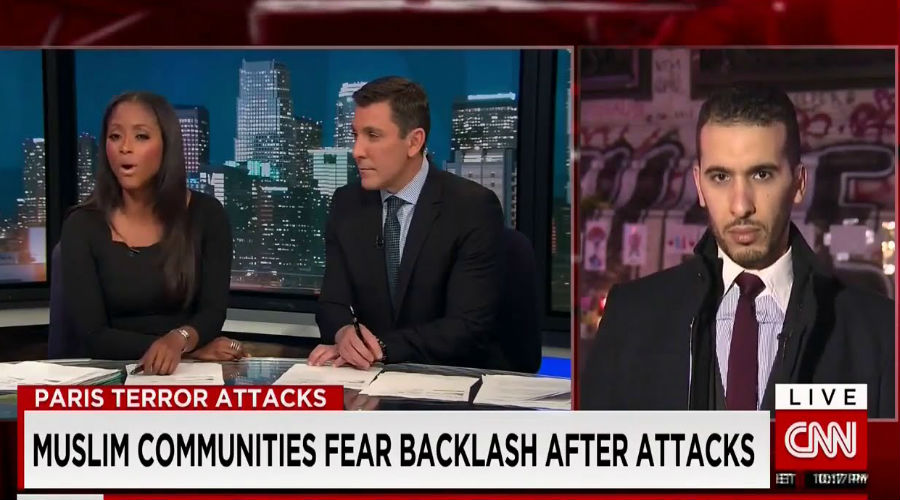The debate on the role of media in countering terrorism is widening. This is crucial, especially amid increasing disagreement about identifying optimal coverage of terrorist attacks in some states, and the techniques used to avoid falling in the traps of overstating or understating involved incidents. Several media organizations have faced this problem in recent past, so much so that their performance became clearly marred by a lack of professionalism and biased reporting following an upsurge in ISIS activity, which, according to some views, benefited from media coverage that exaggerated or amplified its perceived power or took it for granted.
Some media outlets in Western states were no exception, and the mistakes they made while tackling the dangers of terrorism offered free advertisement and propaganda to some terrorist organizations and extremist elements and even encouraged them to carry out more attacks. That is, these organizations and elements take advantage of the wrong messages that such media coverage send across spontaneously and unintentionally, impacting economic performance and exacerbating instability. This promoted experts to warn of the consequences of Western print and visual media's exaggerated coverage of terrorist attacks while amplifying their physical and moral impact on society.
Mounting Criticism
Amid increasing attacks by terrorist organizations and ISIS in particular against Western states over the past three years, where ISIS used lone wolves to breach tightened security measures imposed by these states, Western media coverage of attacks was clearly heightened. Various political TV shows, news bulletins and whole pages of print media were solely dedicated to discuss the attacks. This was prompted in particular by warnings of an influx of European terrorist returnees after huge losses were inflicted on ISIS by military strikes in Syria and Iraq as well as terrorist threats against European states.
The media hype about terrorism prompted calls to control media coverage of terrorist incidents in European cities. A clear instance of that is an article titled "The question terrorists love: ‘Can you guarantee safety at Euro 2016?", that was published in The Guardian on June 10, 2016, where the author Simon Jenkins noted that nine-tenths of the impact of modern terrorism lies not in the deed but in the surrounding noise. It lies in inducing a sense of insecurity, and hence overreaction, in the host population. He said that the Herculean defenses that went up in Paris and elsewhere in France are said to be “about reassurance”, but have produced, at least in media coverage, the opposite effect. According to Jenkins, the media, prime disseminator of public fear, must acknowledge an obligation not to exaggerate or propagate fear.
Multiple Drawbacks
Western media coverage of terrorist attacks that hit European cities has several drawbacks, of which the following stand out:
1- Selective Media Coverage, in which the focus on specific terrorist attacks are put at the center of media attention and the resulting damage and consequences are exaggerated and amplified while similar attacks, that took place outside Europe and the United States, receive less media coverage. This was evidenced, for instance, in Western media coverage of the majority of terrorist attacks that hit Turkey, Iraq, Syria and other countries in the region.
US President Donald Trump, speaking to military leaders at a press conference at MacDill Air Force Base in Tampa, Florida on February 6, 2017, accused US and Western media of being "dishonest" and covering up some terror attacks. Later in the day, the White House published a list of 78 terror attacks around the world "executed or inspired" by ISIS. The White House asserted that most incidents on the list were under-covered by Western media sources. White House Press Secretary Sean Spicer later told reporters that Trump believes attacks are not “unreported” but “under-reported.”
2- Double Standards, and Lack of Standards. In his article titled "We love to talk of terror – but after the Munich shooting, this hypocritical catch-all term has finally caught us out", published in The Independent on July 24, 2016, Robert Fisk highlighted another type of mistakes made by some Western media. The double standards in defining what a terrorist act is and who is a terrorist perpetrator. The Western media rush to label any explosion or shooting incidents as terrorist attacks even before looking into the motives and background of perpetrators, and yet at the same time, they describe the perpetrators in Afghanistan for instance, as mere attackers. "Now this is very odd. “How come a Muslim can be a terrorist in Europe but a mere “attacker” in south-west Asia? Because in Kabul the killers were not attacking Westerners?" Fisk wondered.
3- Contributing to Increasing Hate Crimes and Violence. Several experts believe that the indirect impact of terrorism that is produced by the media’s exaggeration and overstatement is far more severe, in many cases, than the impact of the terrorist attack itself. The reason is that the media hype does fuel a feeling of insecurity, widespread lack of confidence in security services and its ability to preempt new attacks.
The controversy surrounding the coverage given by some Western media organizations to terrorist attacks - a spillover of terrorism from the Middle East to some European cities- is likely to increase in the coming period. This is mainly linked to these media outlets take on other issues, such as the dangers posed by terrorism on the economy and security stability, along with the ongoing problems of refugees which represent another spillover of crises from the Middle East to Europe.


